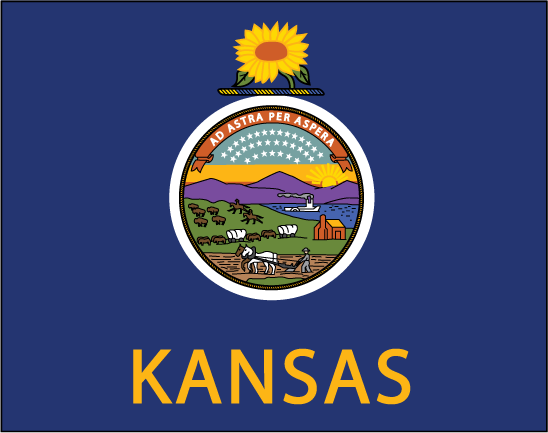The expedition of Major Stephen H. Long a scientific exploration sent out by the Government ascended the Missouri to the present town of Council Bluffs, Iowa, in 1819. Long camped there for the winter, then moved south to the Platte and Red Rivers, entered Colorado, where members of his party made the first ascent of Pike's Peak, and returned to the Mississippi via the Red River. His expedition, following in the path of Pike, accumulated scientific data, and introduced the first steamboat to Kansas waters. The Western Engineer entered the mouth of the Kansas on August 10, 1819, and transported his party up the course for one mile. Here the mud left by flood waters made it necessary to turn back and continue up the Missouri.
A period of still deeper significance for the future of Kansas followed. In 1818 the Missouri Territory asked admission to the Union as a slave State; simultaneously, Alabama, also a slave State, asked admission. Alabama was admitted in 1819, balancing the power of the opposing factions, ii free and n slave States. The debates over Missouri resulted in the Missouri Compromise, passed February 17, 1820, providing that Missouri should be admitted as a slave State, but that all future States west of the Mississippi and north of 36 and 30' should be free. On August 10, 1821, Missouri was admitted under the terms of the compromise and the question of slavery shifted to the territory west of the Mississippi, where it was to flare anew in Kansas. Two years later the boundary between Missouri and Kansas was definitely fixed.
Thomas Hart Benton, Senator from Missouri, began in Congress his championship of western development in 1824, only to meet with opposition such as the following from Daniel Webster: "What do we want with this vast and worthless area, of this region of savages and wild beasts, of deserts, of shifting sands and whirlwinds, of dust, of cactus and prairie dogs; to what use could we ever hope to put these great deserts, or those endless mountain ranges, impenetrable and covered to their very base with eternal snow? What can we ever hope to do with the western coast, a coast of 3,000 miles, rockbound, cheerless, uninviting and not a harbor in it? Mr. President, I will never vote one cent from the public treasury to place the Pacific Coast one inch nearer Boston than it is now."

